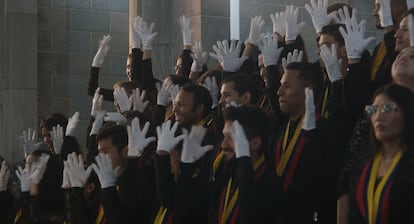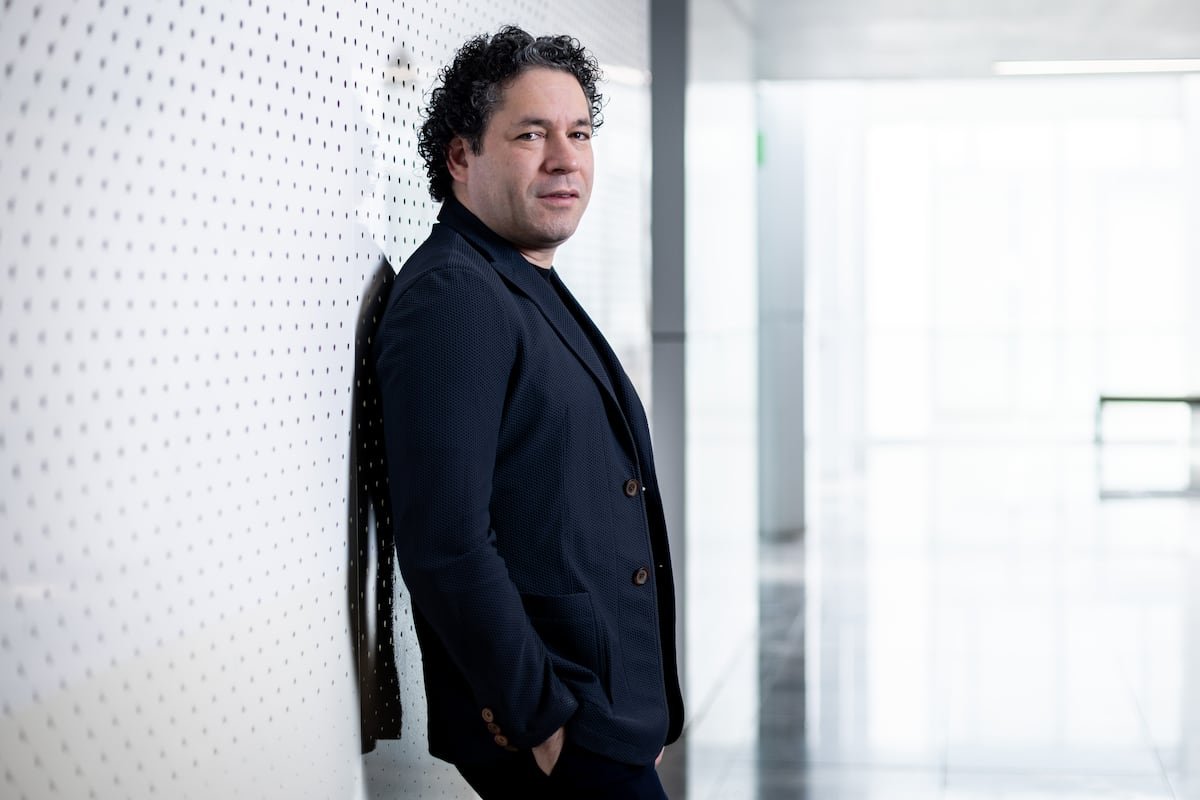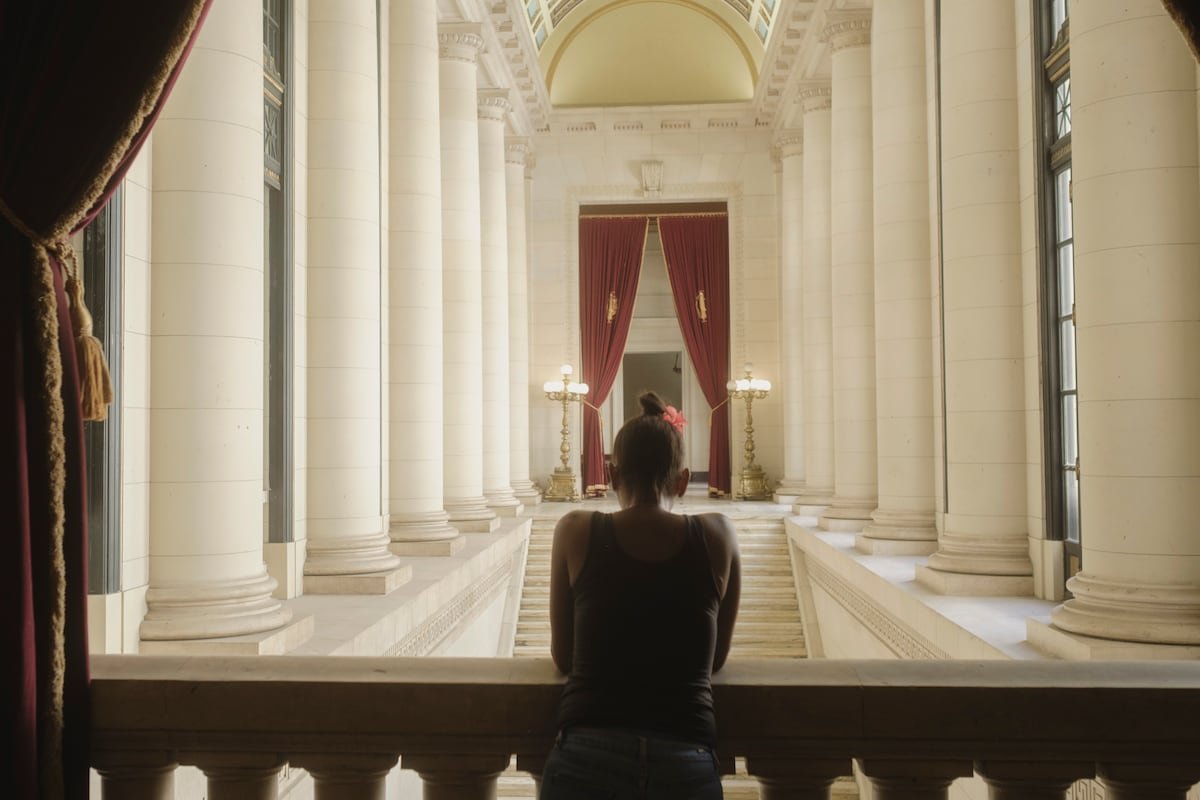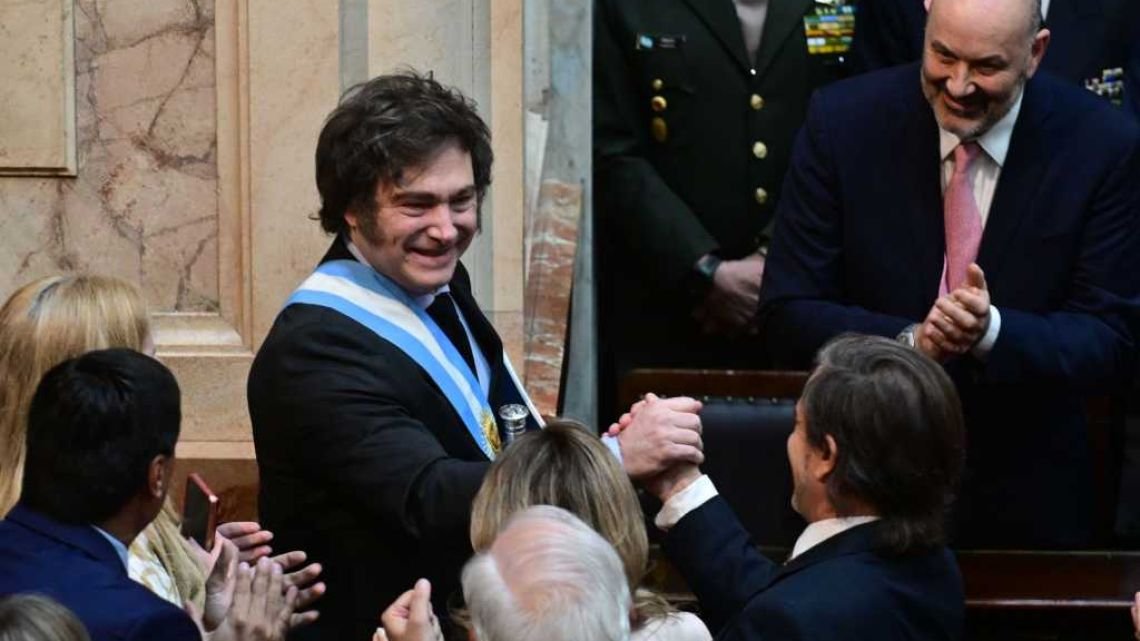Fidelio is the only opera by the German composer Ludwig van Beethoven, and he wrote it while he was going deaf. In April 2022, the Los Angeles Philharmonic, along with the theater company Deaf West Theatre, premiered a new production of this work, conducted by the Venezuelan conductor Gustavo Dudamel. The Manos Blancas Choir, an ensemble of deaf musicians from Venezuela, was part of this production. It was the first time the work had been performed in sign language. Witnessing this led Dudamel to a reflection and an epiphany: that these young people were the lights of this project, and as such he wondered: what would happen if they stopped being just lights and became the faces of Fidelio? This question was the genesis of El canto de la manos (The song of the hands), by director María Valverde.
El canto de la manos explores deafness through music, following Jennifer, Gabriel, and José, three deaf musicians from Venezuela, as they take on the challenge of performing Beethoven’s Fidelio on stage for the first time in sign language.
Dudamel, 44, born in Barquisimeto, says the idea for the documentary began to evolve while he was at Princeton University. There, he had the opportunity to see one of Beethoven’s sketchbooks — of which there are only two or three in the world, according to the musician — and he encountered “a very great intensity.”
“We know Beethoven’s world of sound, music expressed in calligraphy, but when you see the natural strokes of what he wrote, I describe it as a beautiful torment. I imagine all those searches, because he wrote, erased, changed. It was, I believe, a bit of that inner world that led him to deafness, a very intimate part of him, when he was already completely alone, and through which María and I wanted to understand this same condition of these young people,” explains the composer, speaking in Guadalajara, Mexico.
The year 2020 marked the 250th anniversary of the German composer’s birth. The Los Angeles Philharmonic’s music and artistic director felt the need to explore beyond the traditional to celebrate. The plot of Fidelio has parallels with the story of the young people who star in the production, and with its author.
“It’s a story that speaks of love, freedom, and the struggle against adversity. A reflection of his life itself […] I see them and think about how transcendental it is to experience music through sign language. It would mean being able to understand Beethoven in his true dimension,” says the music director of the Simón Bolívar Symphony Orchestra of Venezuela in a segment of the film.
María Valverde, the Madrid-born actress who cemented her career with Three Steps Above Heaven in her early twenties, is now at 38 making her directorial debut. She explains, via video call, that her biggest challenge was being faithful and honest to the story she was telling. “Above all, that Jennifer, Gabriel, and José Gabriel would see me as someone they could trust. No one invited me to make this film. I made it from the heart and from my need to understand the deaf community. My biggest challenge was getting them to identify with the story I was telling,” she explains.
Valverde says it was a job of intense observation as they filmed, especially because they couldn’t waste time as they were working alongside the production, with situations occurring and little time to plan. The director describes it as a “pretty wild” process because they had to be filming “on the spot.”
“For me as a director, it was necessary to understand, as a hearing person, that I sometimes had to stop learning what I already knew and let myself be absorbed by what they were teaching me. In the end, it was a learning process that, as hearing people, we have to stop and think and ask ourselves what we’re doing wrong when we’re not including them in certain experiences that are necessary,” Valverde adds.

Beethoven’s multidimensionality
The Manos Blancas Choir is a special education program within the National Network of Youth and Children’s Orchestras of Venezuela, known as “El Sistema.” This program was created in 1995 by José Antonio Abreu with the goal of integrating children, young people, and adults with functional diversity or physical and cognitive disabilities into daily life and artistic activities, using music as a tool for development and inclusion. This program has fostered important musicians, such as Dudamel.
The Venezuelan musician explains that bringing this project to life took years of work, trial, and error. From the outset, he explains, they encountered a communication and cultural barrier that could lead to the notion that we’re separate. But the orchestra conductor says it’s much simpler than it seems with music as a bridge. It may sound utopian, he says, but you just have to take on the challenge. “Music isn’t just sound. It’s vibration; it has many spectrums. Many dimensions through which you can feel it. Music isn’t just heard, it’s felt, and that’s how it breaks down barriers. It breaks down any kind of wall we may have in principle and in terms of cultural values.”

Valverde, who is married to Dudamel, admits, laughing, that directing a conductor has its complications. However, she praises his gift for artistry and his way of expressing himself to achieve something “so beautiful and inspiring.” “For me, it was very important that he be this creator of dreams and this person who enables the protagonists to develop artistically. It was a very beautiful exercise that we did, both he as conductor and I as director, to be able to unite in such a personal and necessary project,” she explains.
For Dudamel, who considers himself a fan of Beethoven, his work, and his creative process, this project helped him more deeply understand the multidimensionality of music. “You can see it through these kids, who teach you how to truly feel music. Beethoven gave it to us because, as he became deaf, he created his own musical language that transcended and remains avant-garde today. In the last music he wrote, when he was already completely deaf, you see a revelatory world that he offers us through his condition. This hope and motivation that these kids give us through music is something powerfully transformative,” he concludes.
Sign up for our weekly newsletter to get more English-language news coverage from EL PAÍS USA Edition










